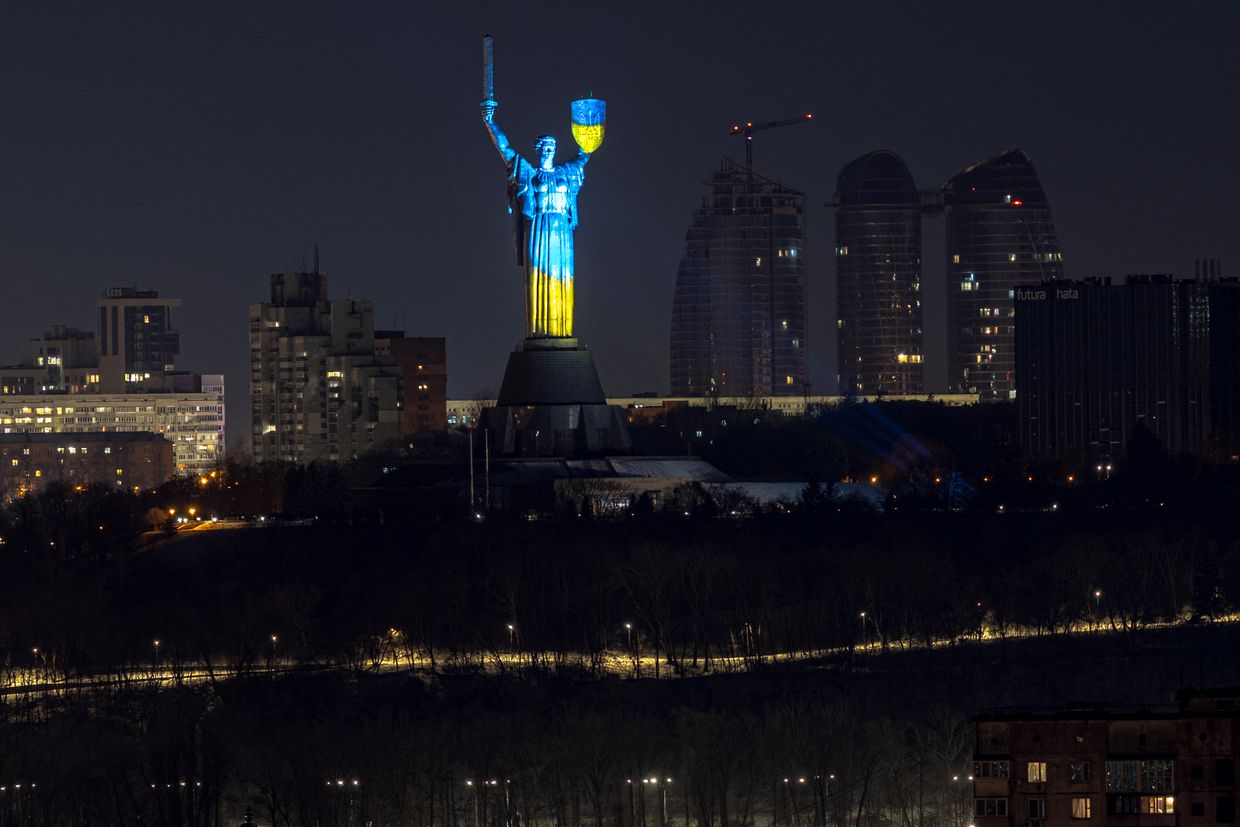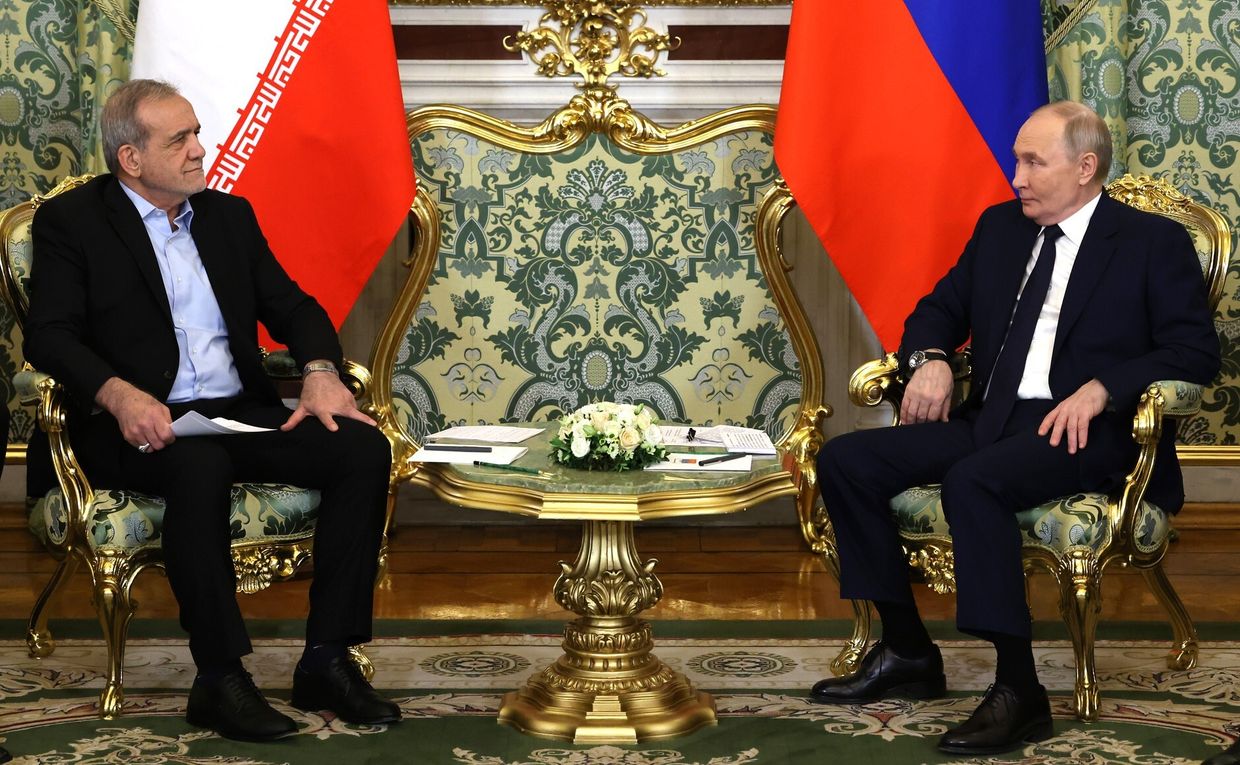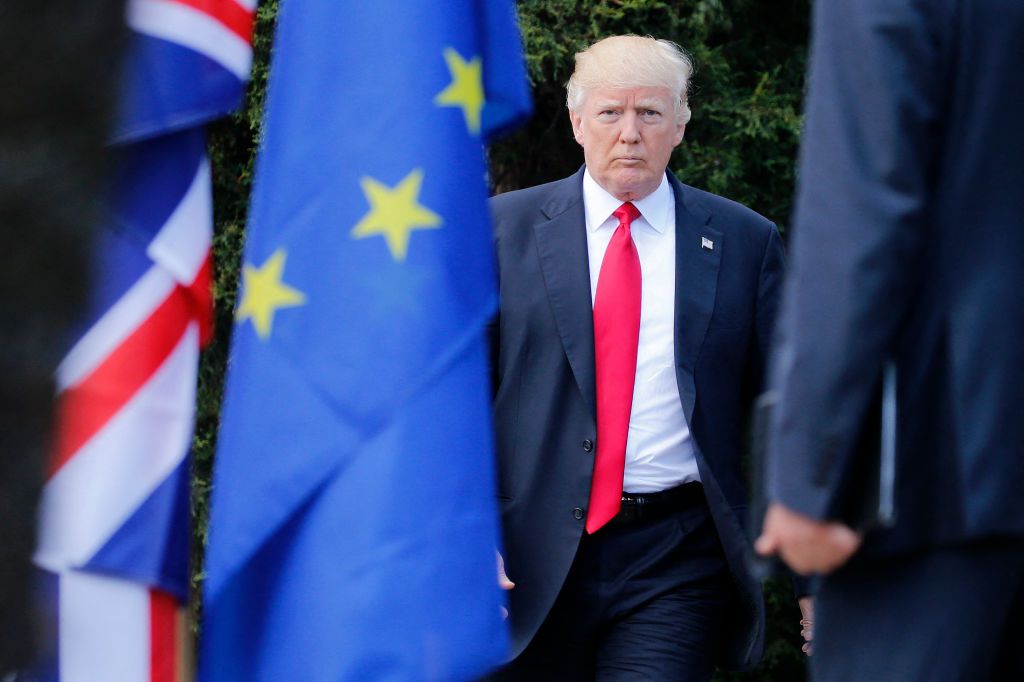
US opposes joint G7 statement on further support for Ukraine, Politico reports
This is not the first time that the U.S. has blocked joint G7 statements in support of Ukraine and condemning Russia's war.

This is not the first time that the U.S. has blocked joint G7 statements in support of Ukraine and condemning Russia's war.
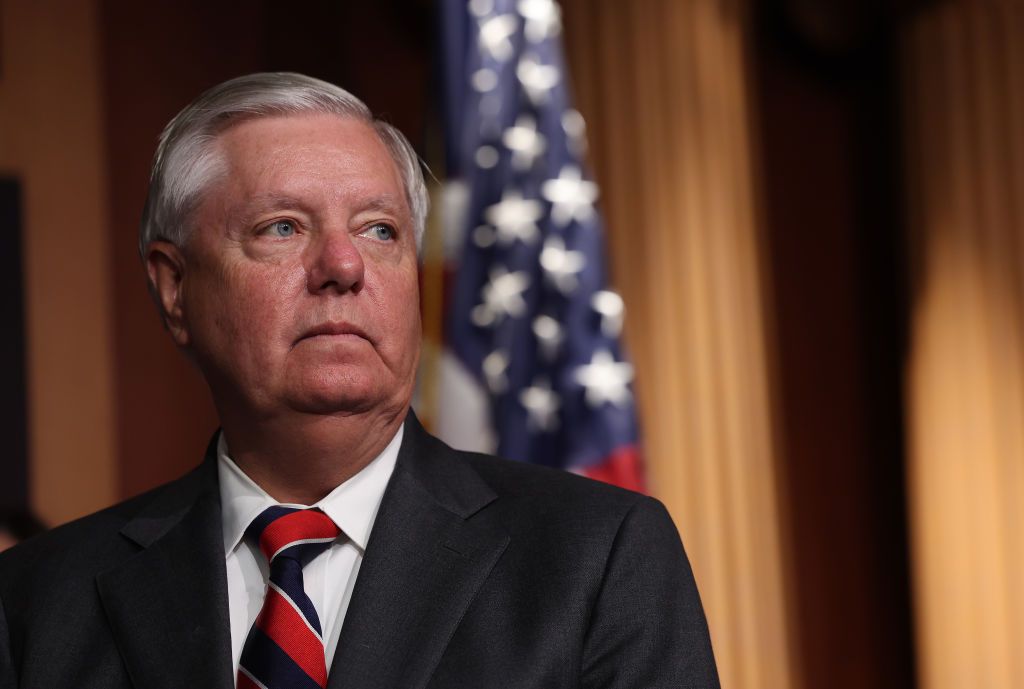
The U.S.-mediated negotiations between Ukraine and Russia have stalled, as Moscow continues to refuse a ceasefire.
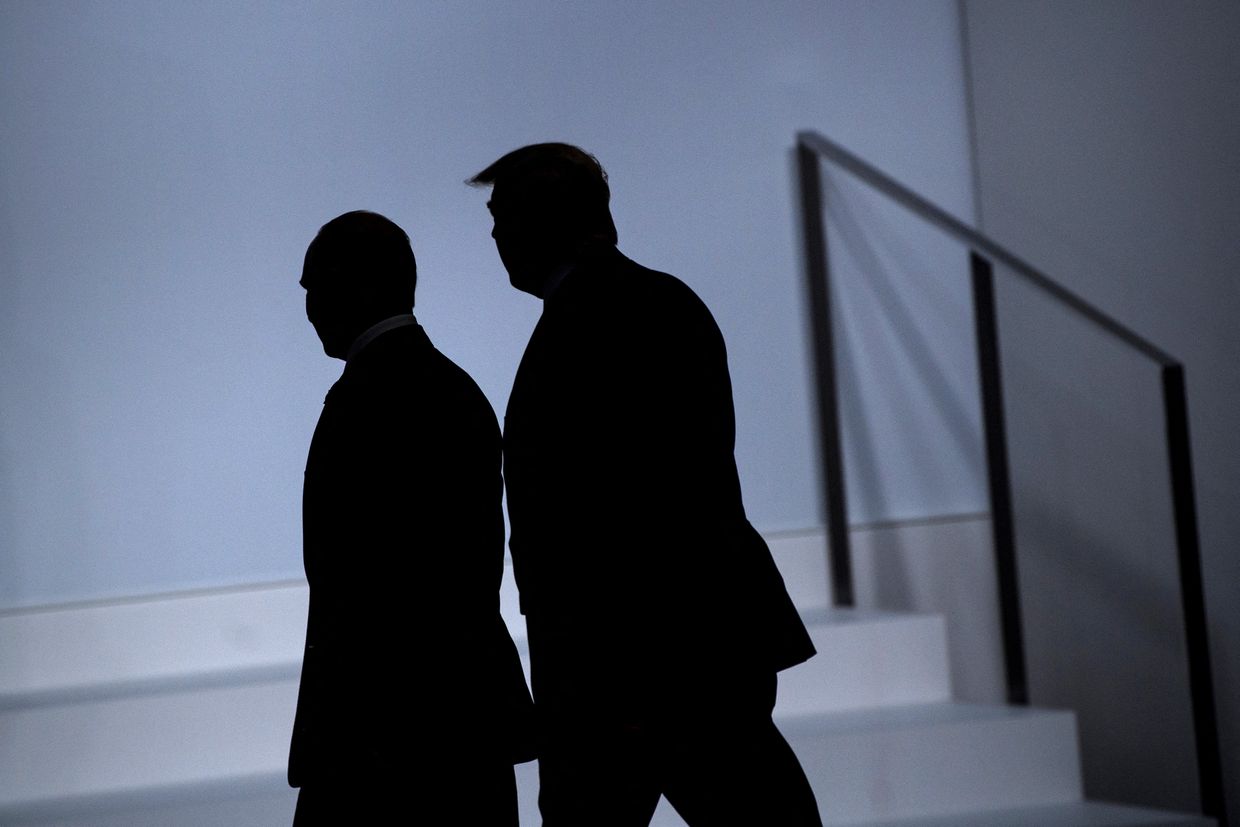
Speaking to the New York Times on the condition of anonymity, a White House official familiar with the call, said that imposing sanctions could impede Trump's goal of "maximizing economic opportunities for Americans," the publication wrote.
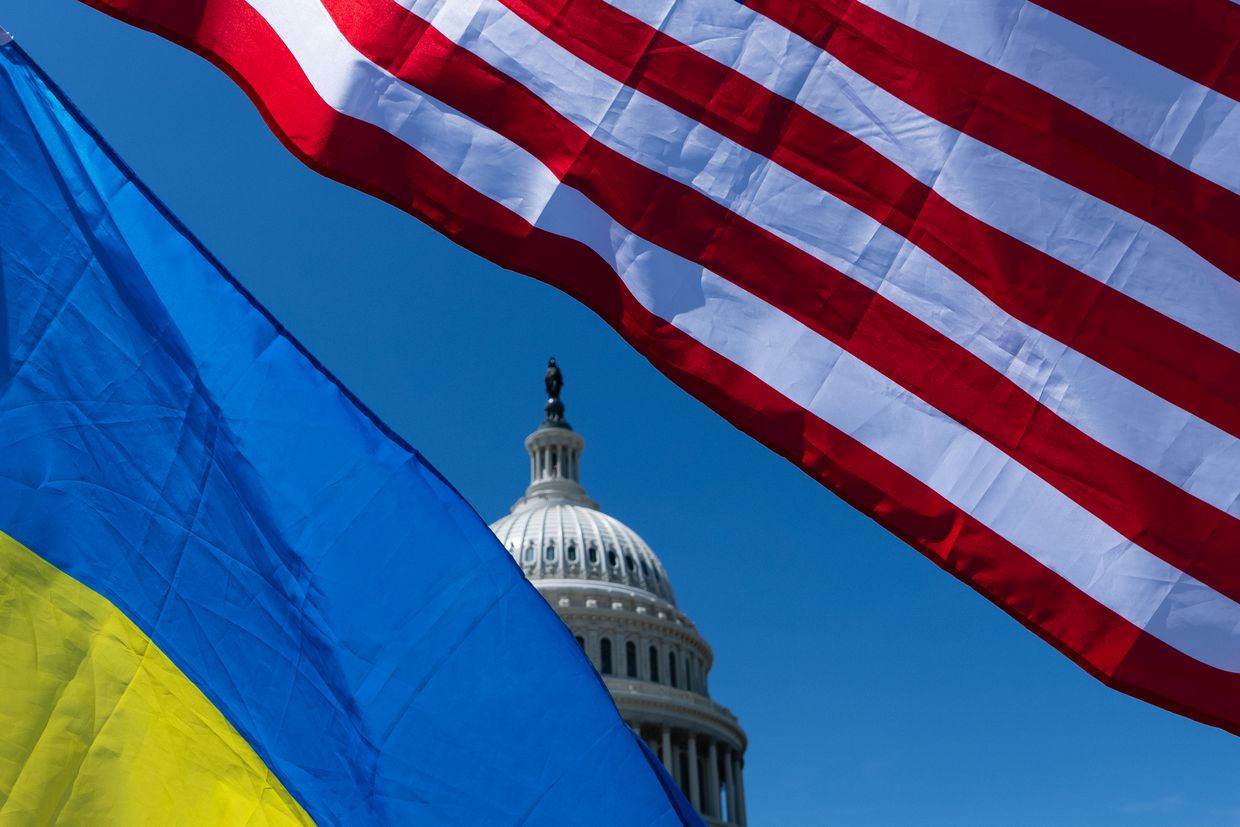
In a rare display of bipartisan unity, a group of U.S. senators has introduced a resolution calling for the return of thousands of Ukrainian children abducted by Russia, urging that no peace agreement to end the war in Ukraine be finalized until all minors are safely repatriated.
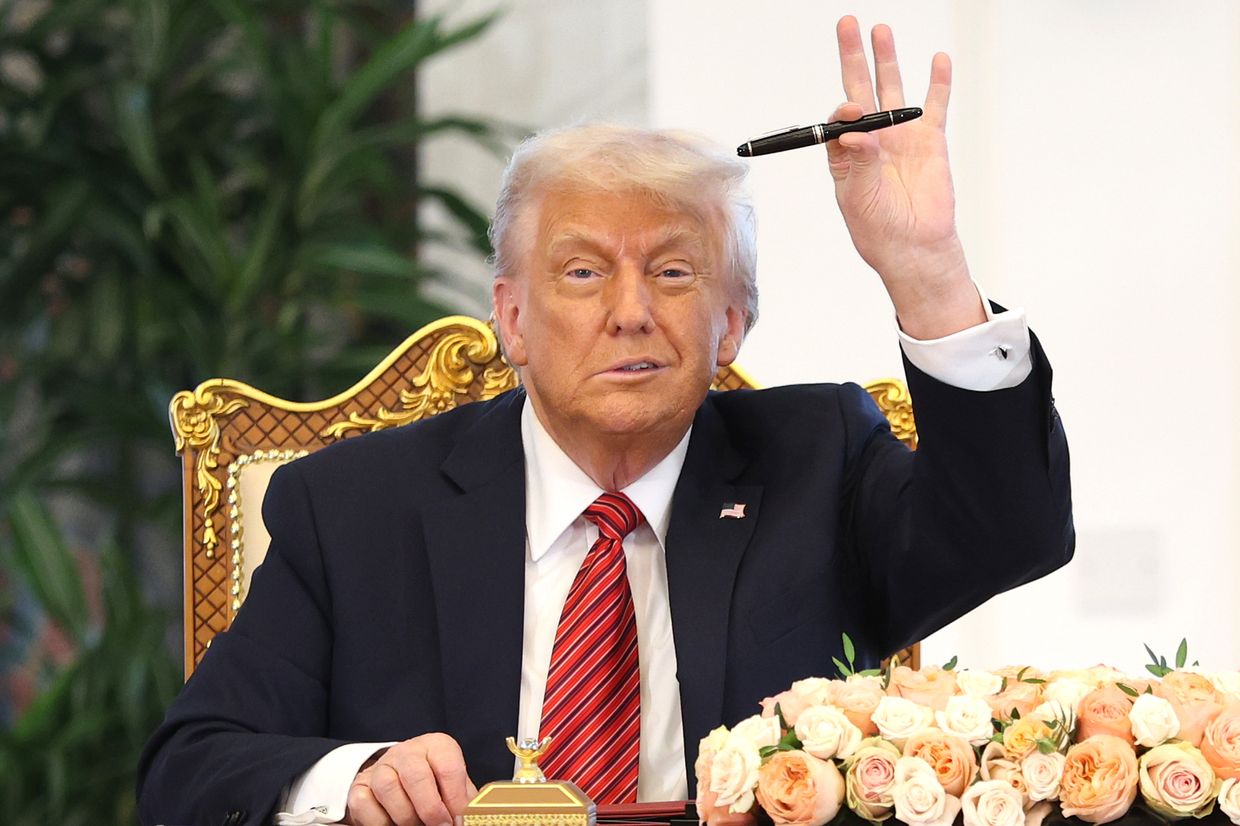
In what is now a semi-regular occurrence, the workings of U.S.-led global diplomacy has cast a dark shadow over Ukraine. U.S. President Donald Trump spoke with his Russian counterpart, Vladimir Putin, on May 19 in the latest attempt to broker a ceasefire in Ukraine. The call came
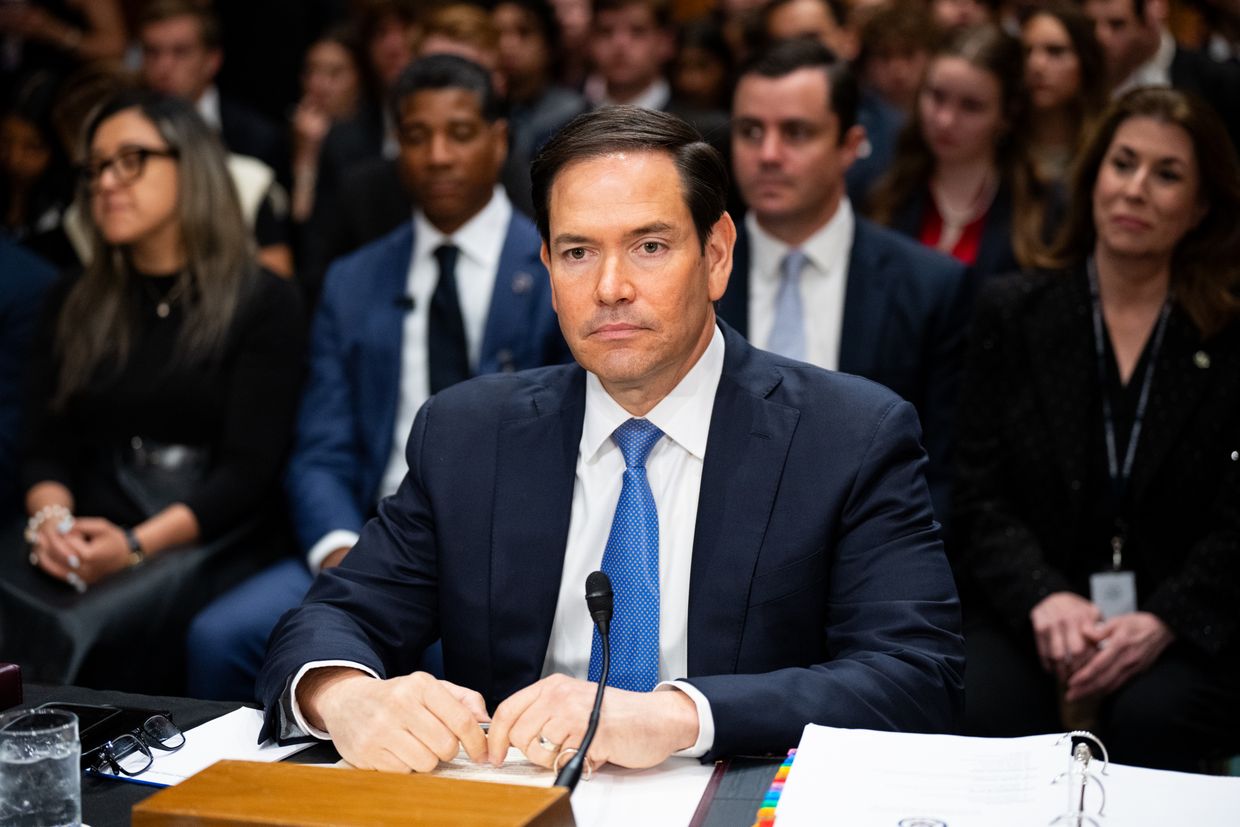
Ukraine has consistently warned that its current air defense capacity is insufficient to counter the scale of Russia's intensified missile and drone attacks.
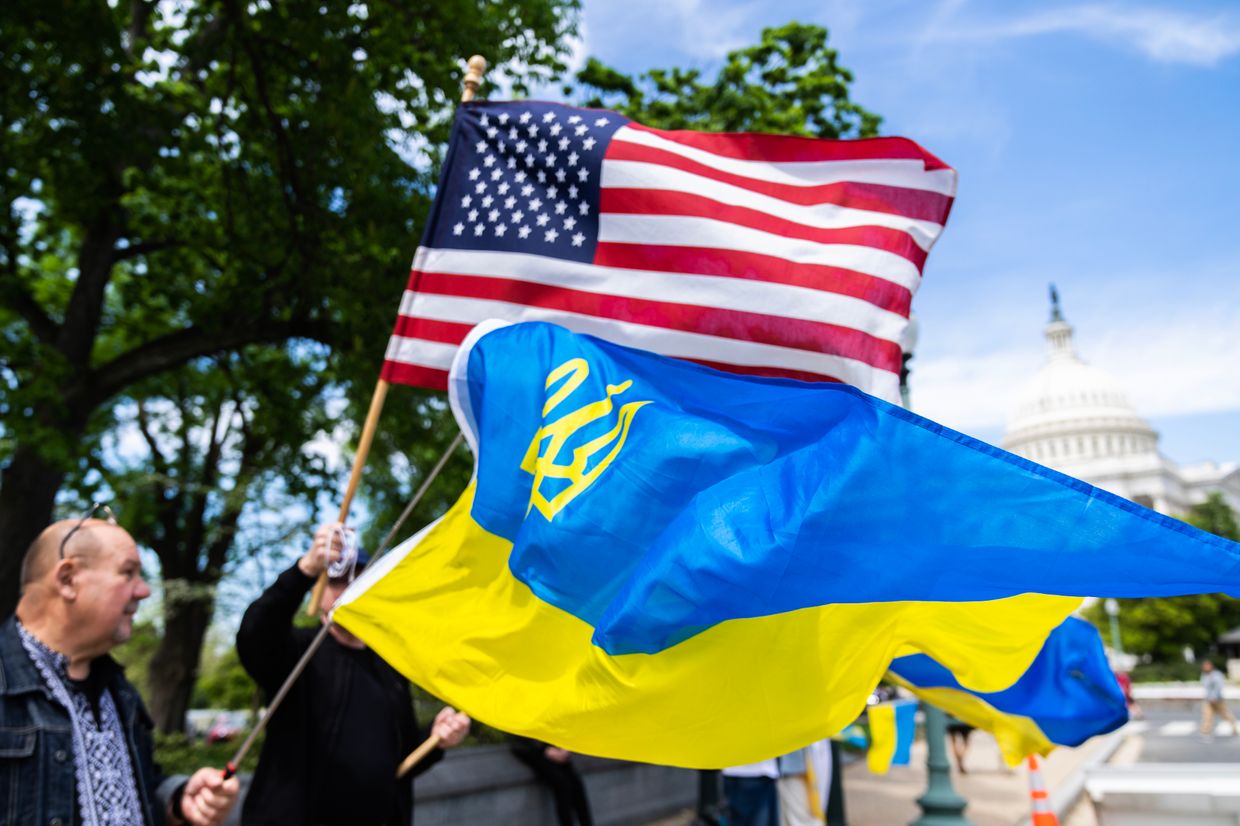
During Joe Biden's presidency, Ukrainians and Haitians were granted temporary protection, allowing them to stay in the U.S. if they could not return to their home country.
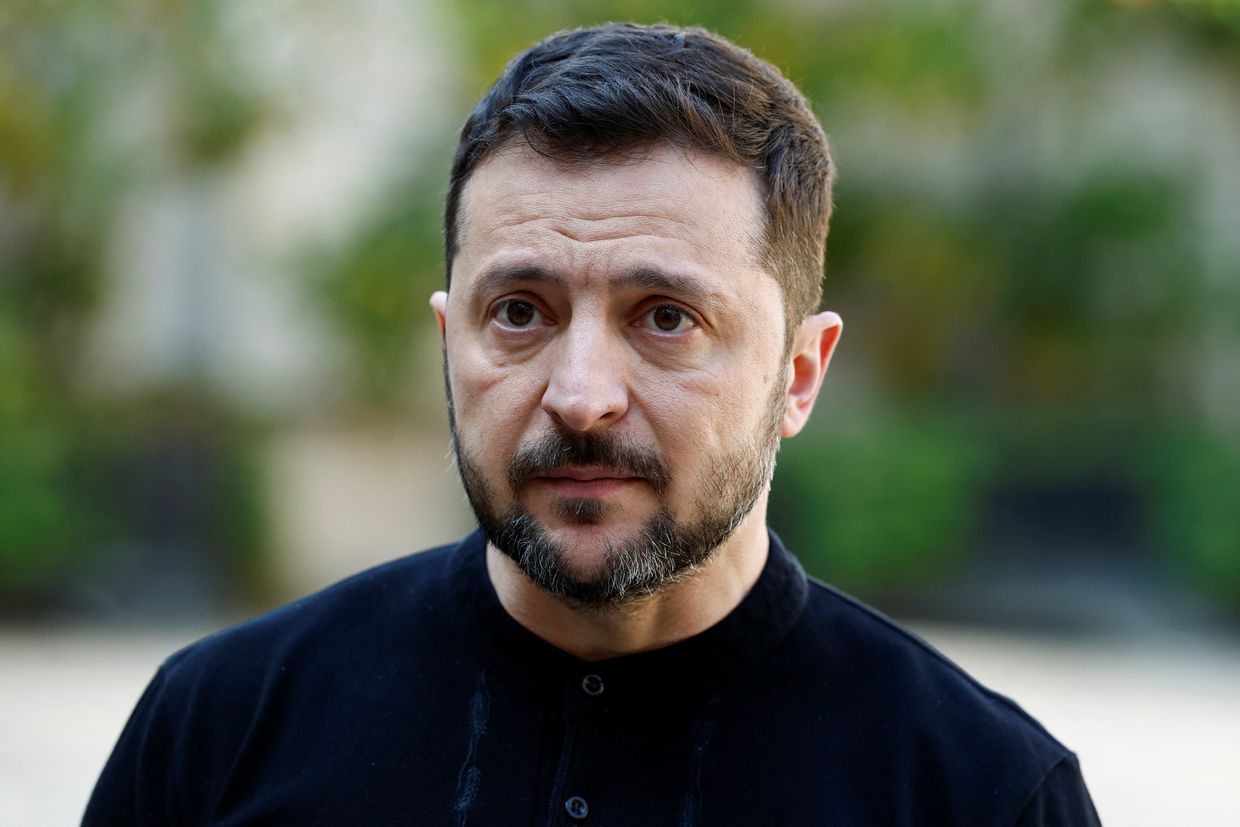
Donald Trump told the leaders that Vladimir Putin agreed to start direct negotiations on a ceasefire immediately, which led to a few seconds of "puzzled silence," Axios reported.
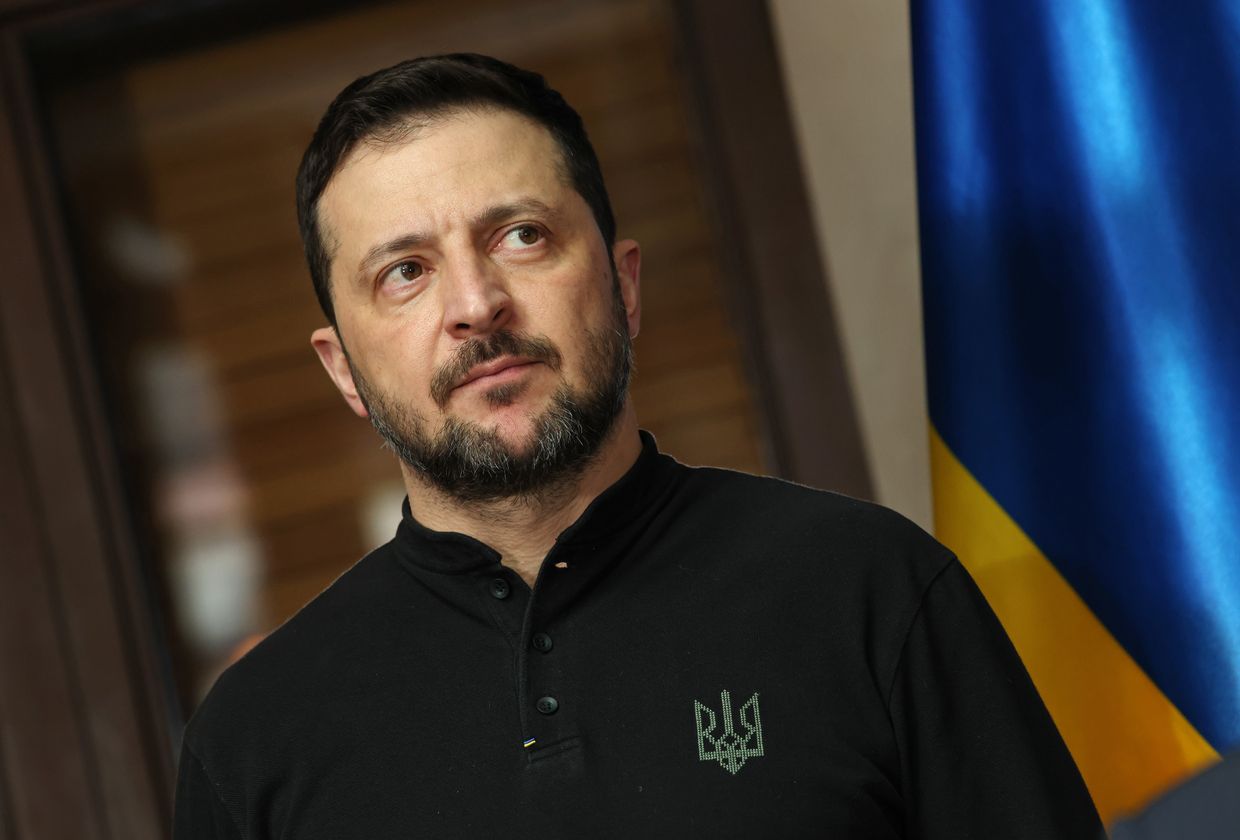
"Clear and realistic proposals must be on the table. Ukraine is ready for any effective negotiation format. And if Russia continues to put forward unrealistic conditions and undermine possible results, there must be harsh consequences," President Volodymyr Zelensky said.
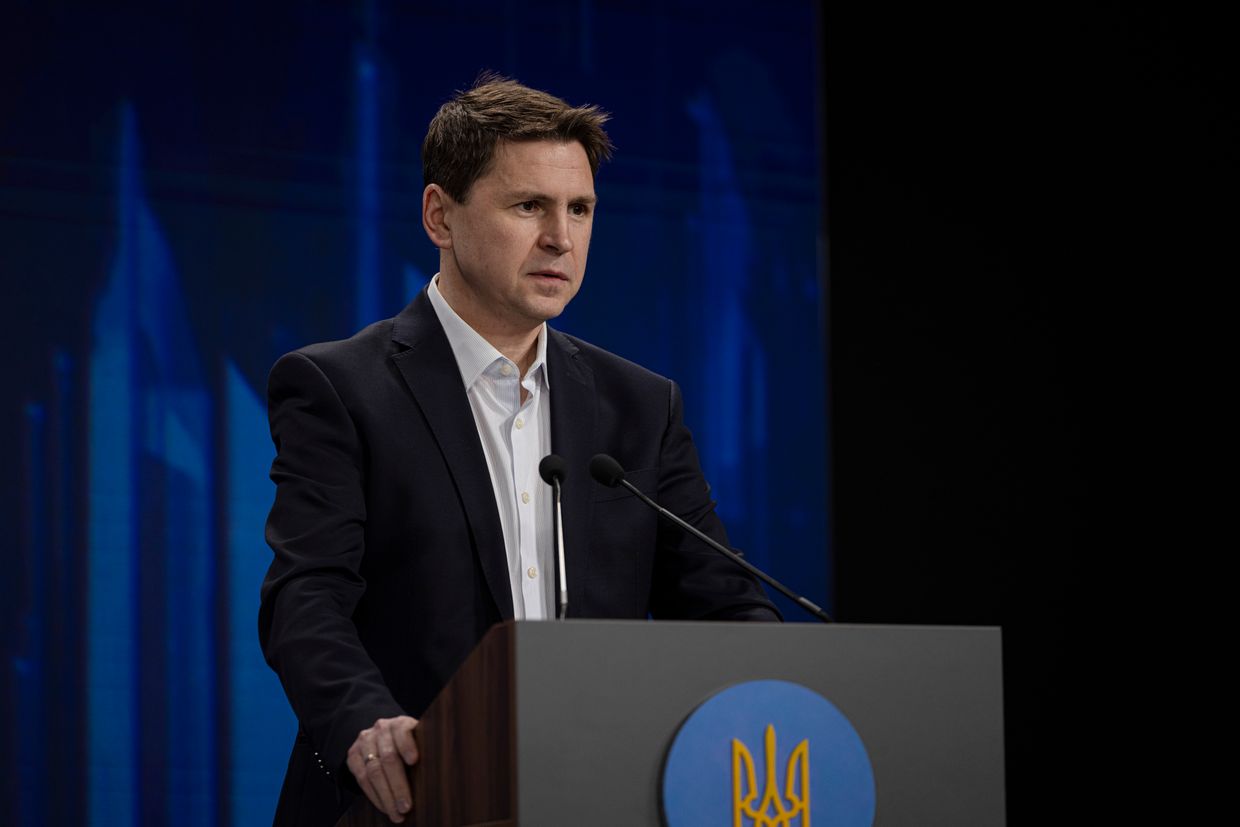
Putin and Trump held a phone call on May 19, during which the Russian leader refused to agree to a ceasefire and instead declared readiness to negotiate a "memorandum regarding a potential future peace treaty."
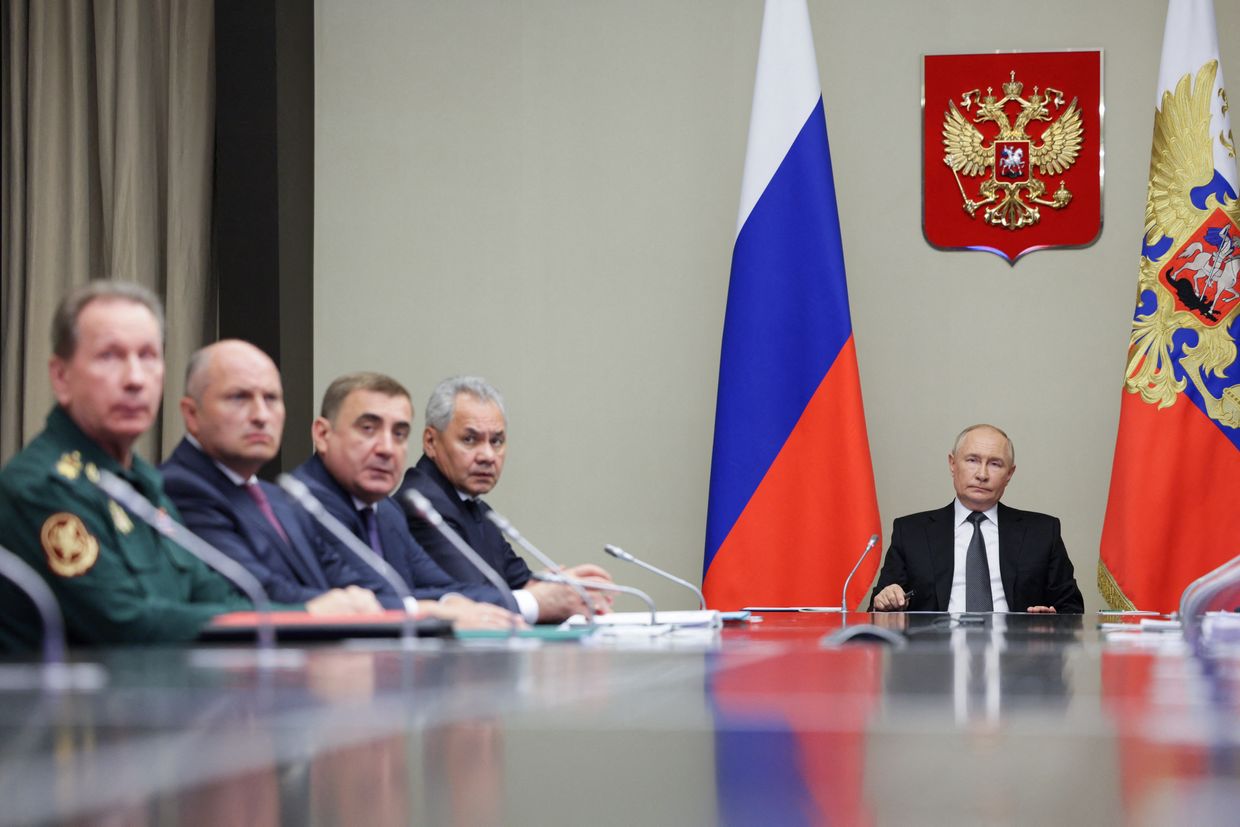
Over 60% of Americans believe Russian President Vladimir Putin is "stalling" peace talks involving the United States, and back weaponry shipments to Ukraine and additional sanctions if Russia refuses to negotiate a peace deal, according to a Harvard CAPS Harris poll released on May 19.
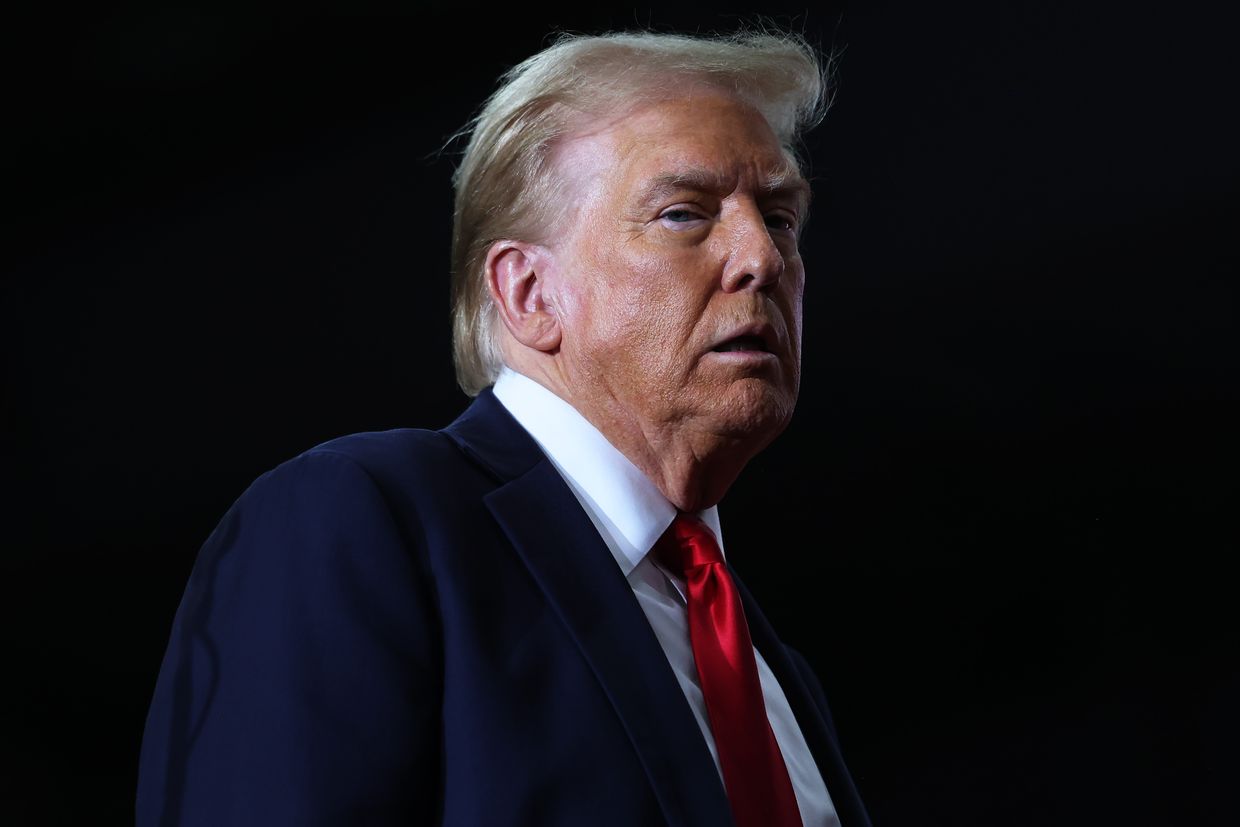
"I tell you, big egos involved, but I think something's going to happen. And if it doesn't, I just back away, and they're going to have to keep going," U.S. President Donald Trump said.
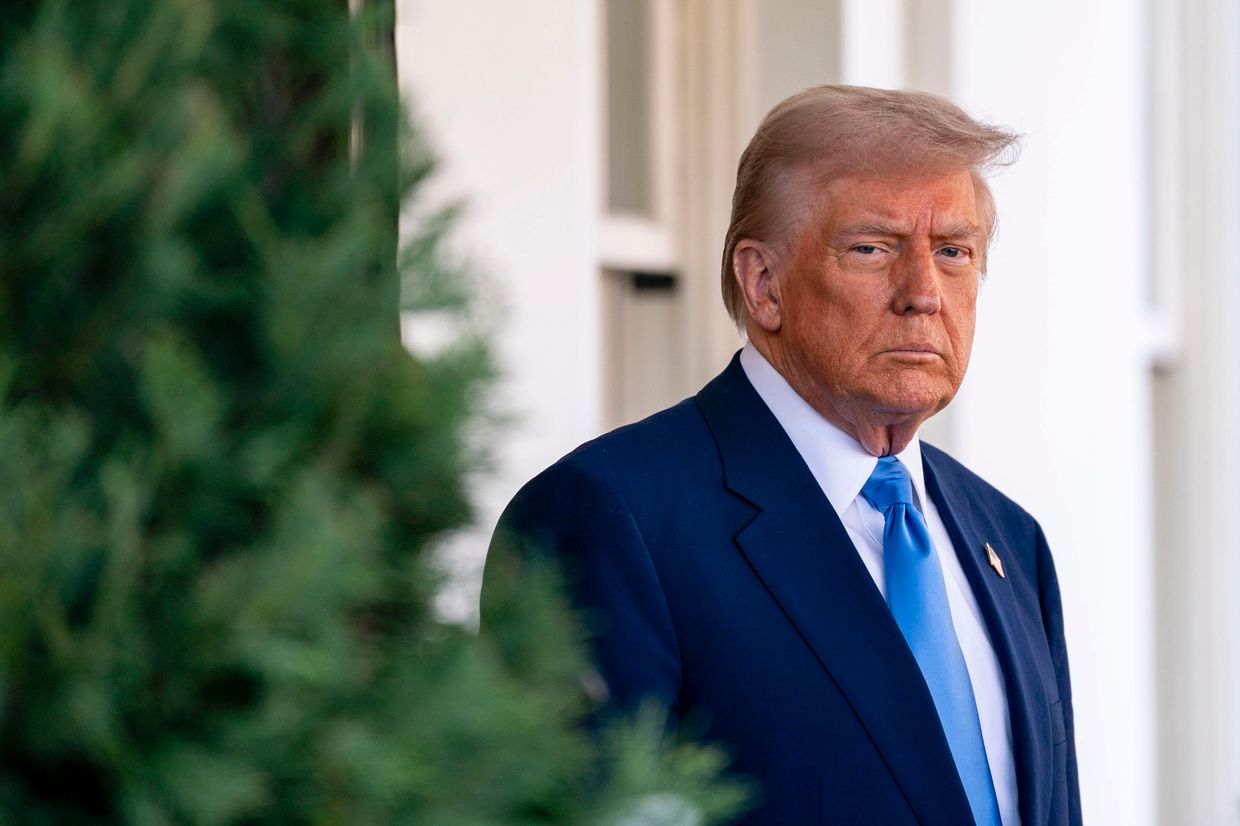
“Because I think there’s a chance of getting something done, and if you do that, you could also make it much worse," Trump told reporters from the Oval Office on May 19.
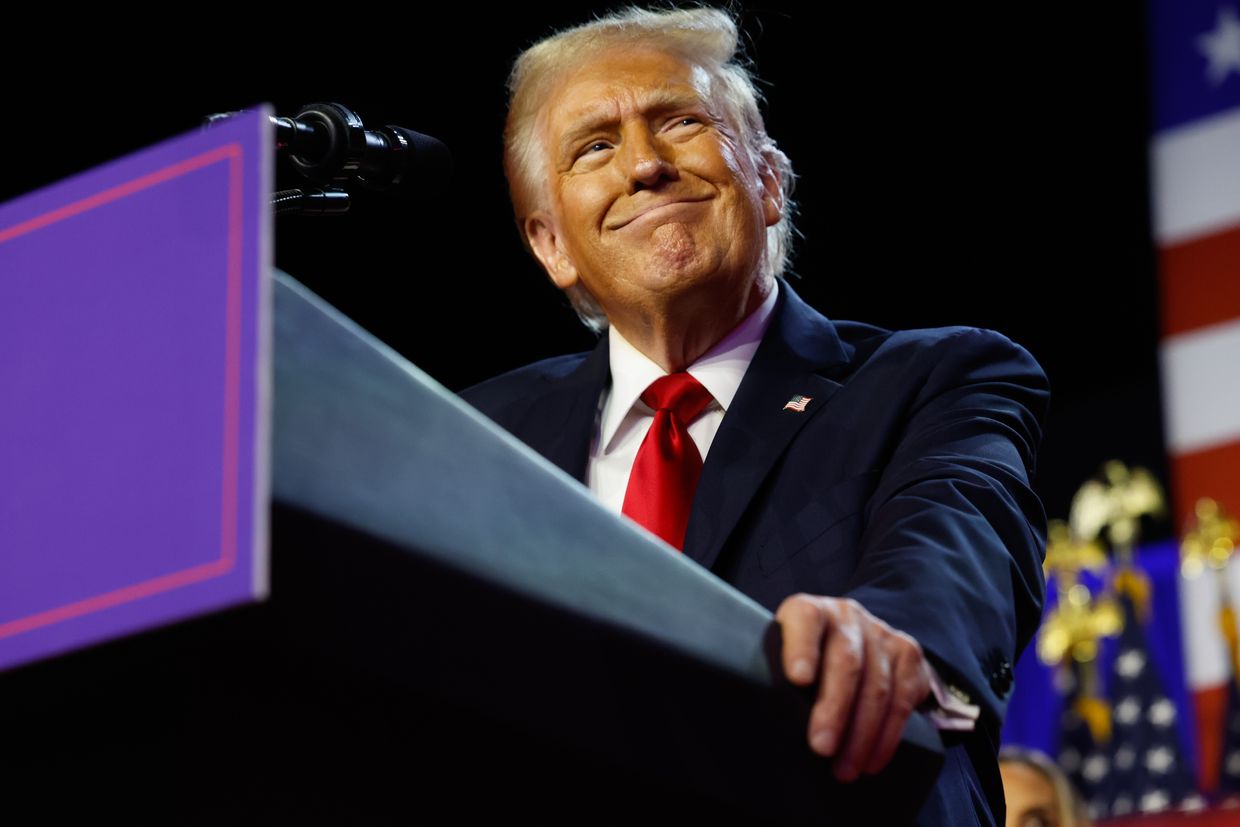
U.S. President Donald Trump, in separate statements, told reporters on May 19 that he trusts Russian President Vladimir Putin, will not sanction Russia, but will abandon Ukraine peace efforts if progress is not made.
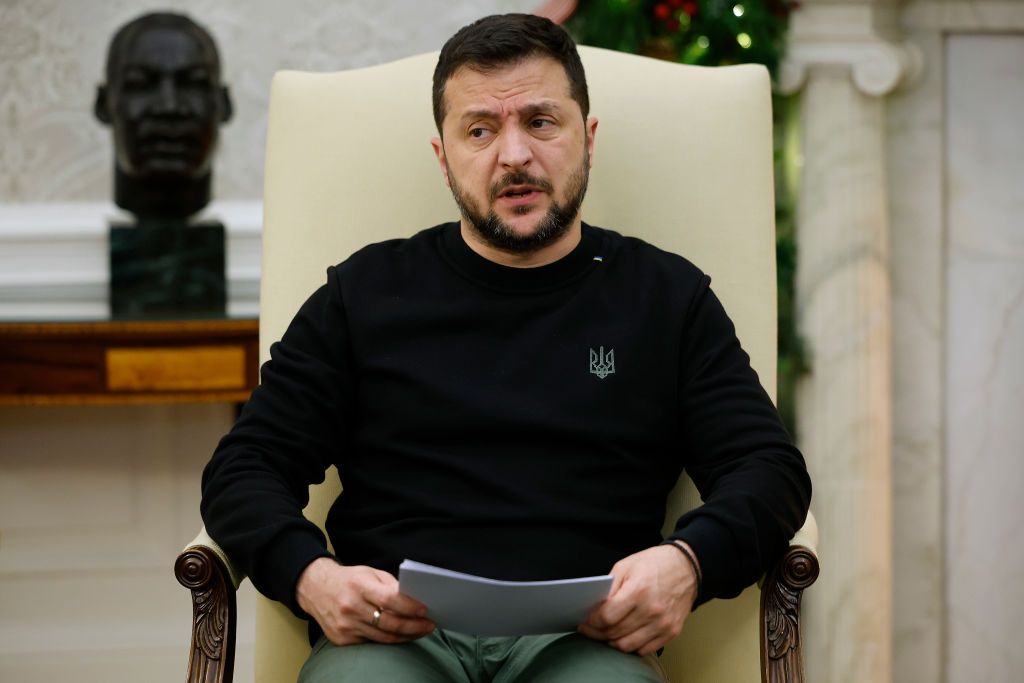
Ukraine knows the date that the EU package will go into effect, though the president did not share that detail in his remarks. Zelensky also said he expects the U.S. to impose sanctions 'when they see fit.'
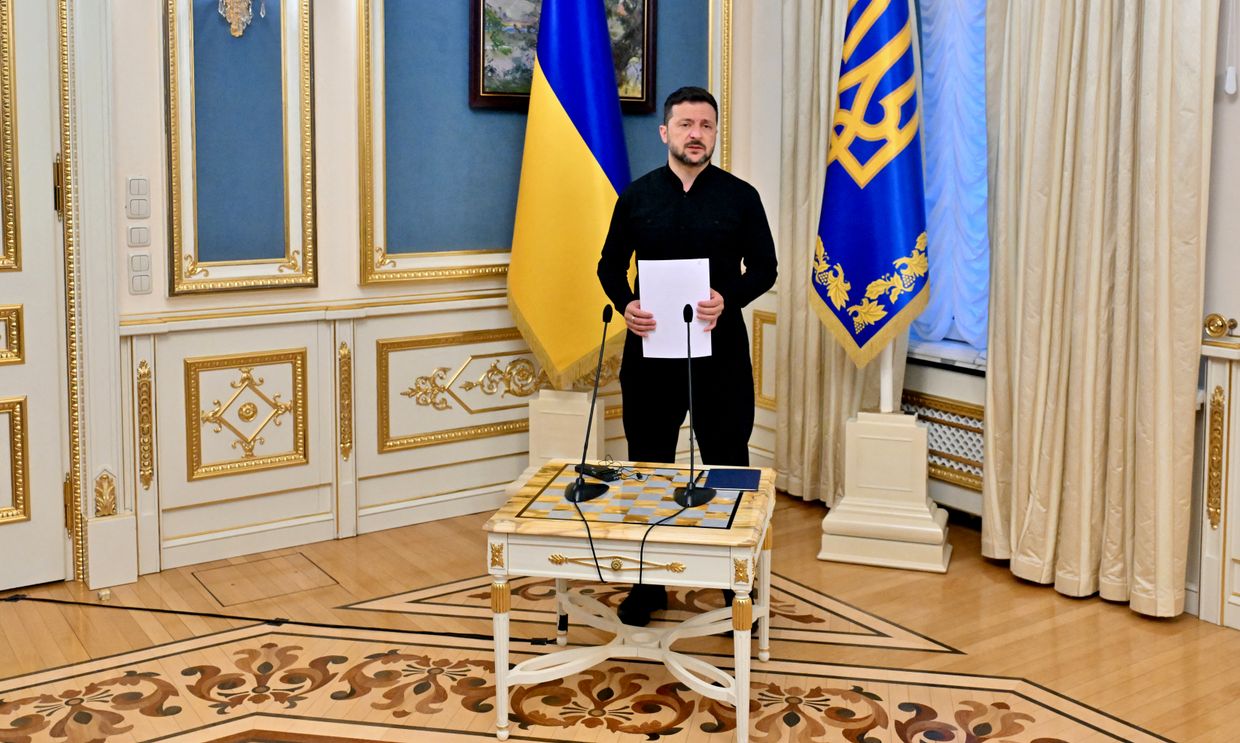
President Volodymyr Zelensky on May 19 said that Kyiv is exploring the possibility of a meeting with delegations from Ukraine, Russia, the United States, and the EU in Turkey, the Vatican, or Switzerland.
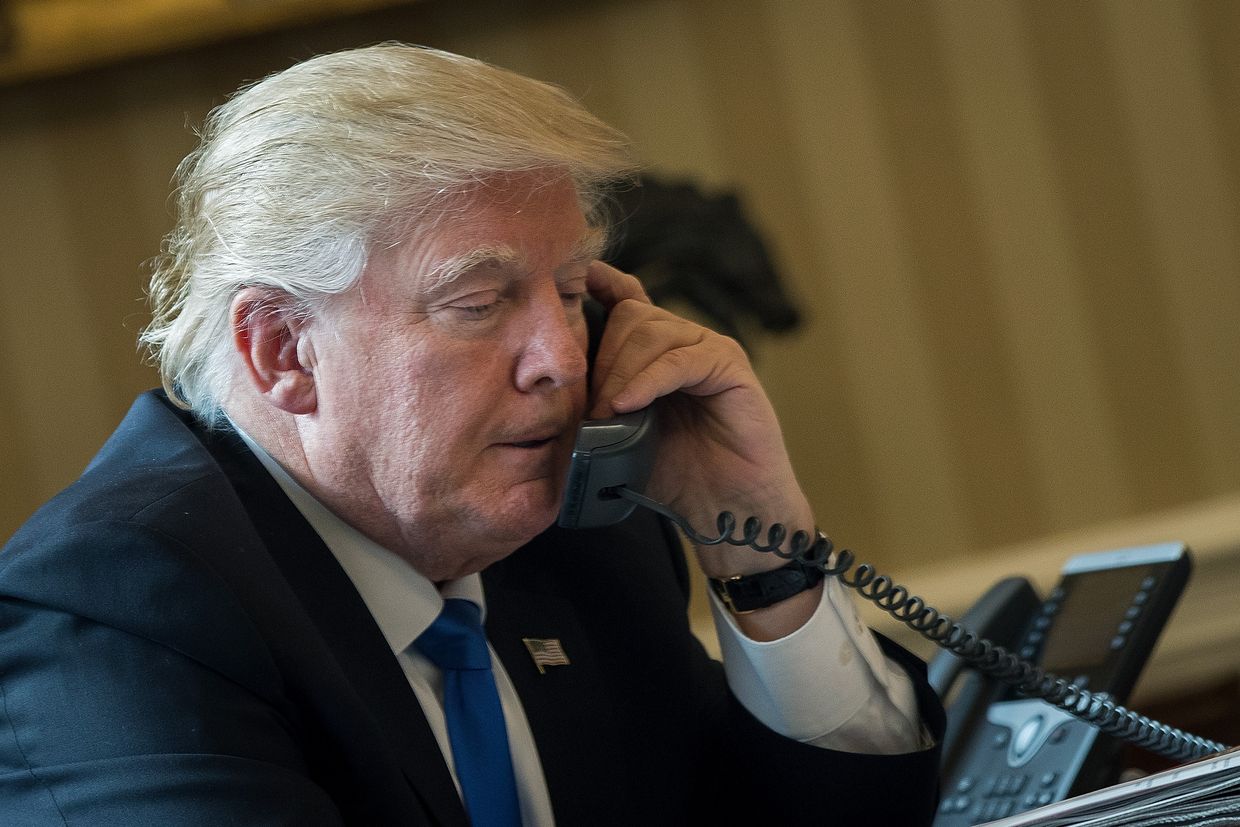
The call comes days after largely inconclusive negotiations in Istanbul, where Russia sent a delegation of low-level officials and reiterated sweeping territorial demands, including that Ukraine accept the loss of Crimea and four eastern regions.
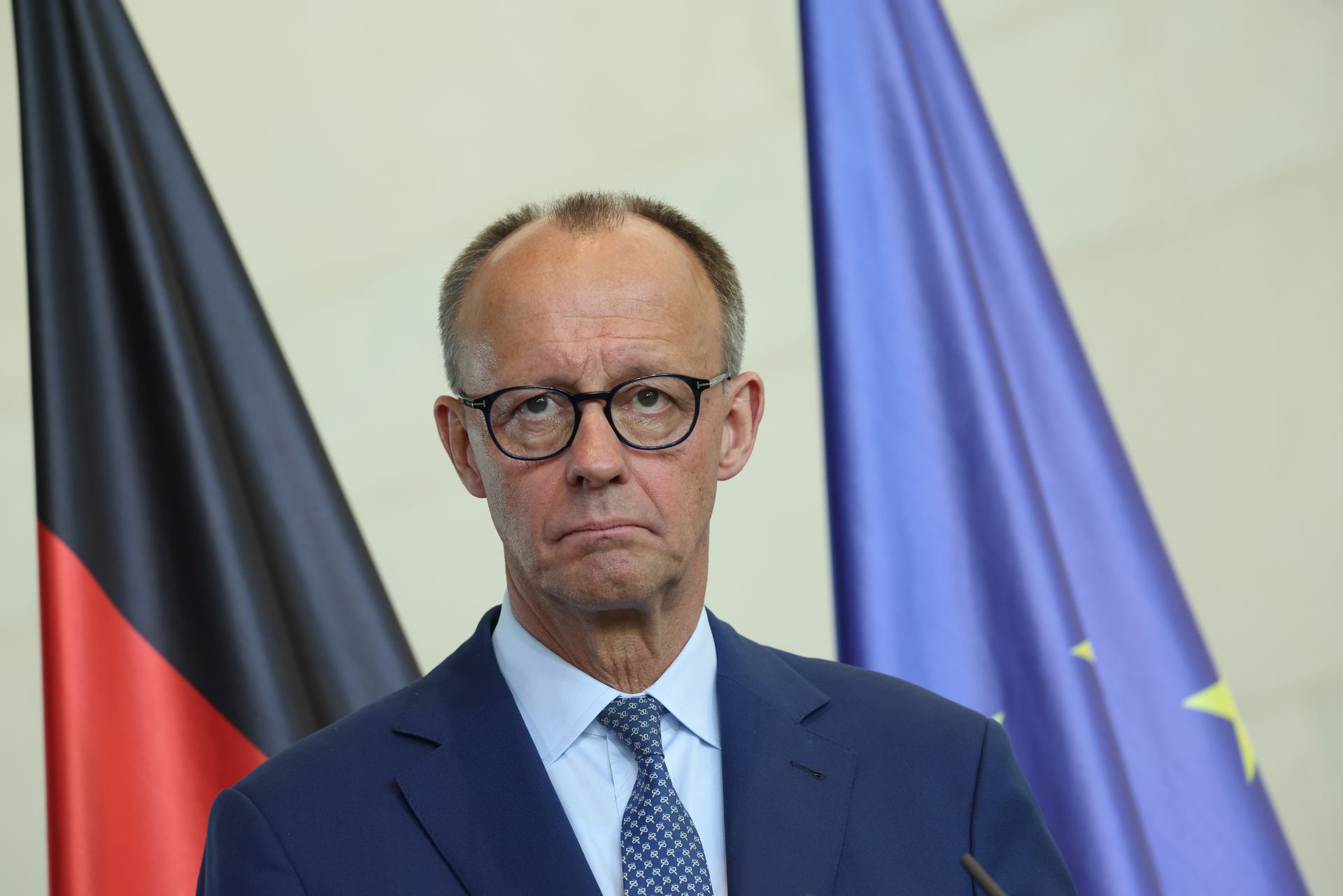
Washington's participation in a potential sanctions package would be "very central," German government spokesperson Stefan Cornelius said.
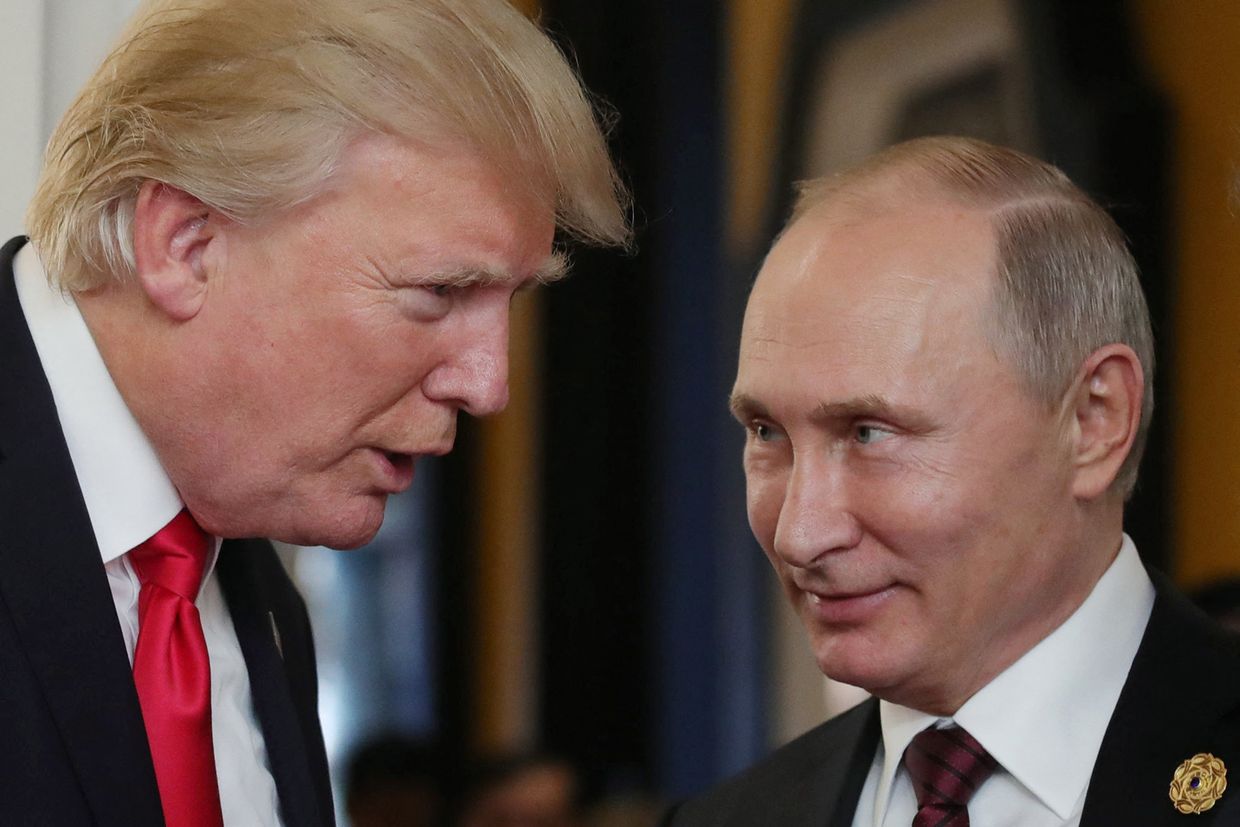
Kremlin spokesperson Dmitry Peskov said the conversation between the two leaders is scheduled for 5 p.m. local time and will "reflect the outcomes of last week’s negotiations in Istanbul" between Russian and Ukrainian delegations.
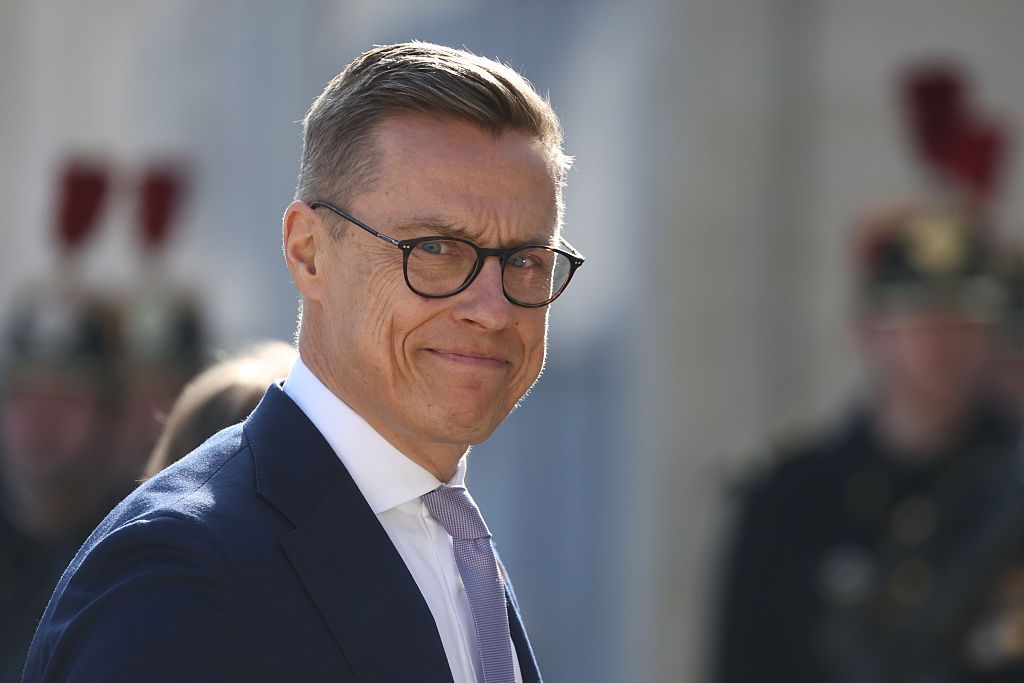
"If you put it together, you could say that Zelensky is patient and President Trump is getting impatient, but in the right direction, which is towards Russia," Finnish President Alexander Stubb said after holding separate talks with both Trump and Zelensky this weekend.
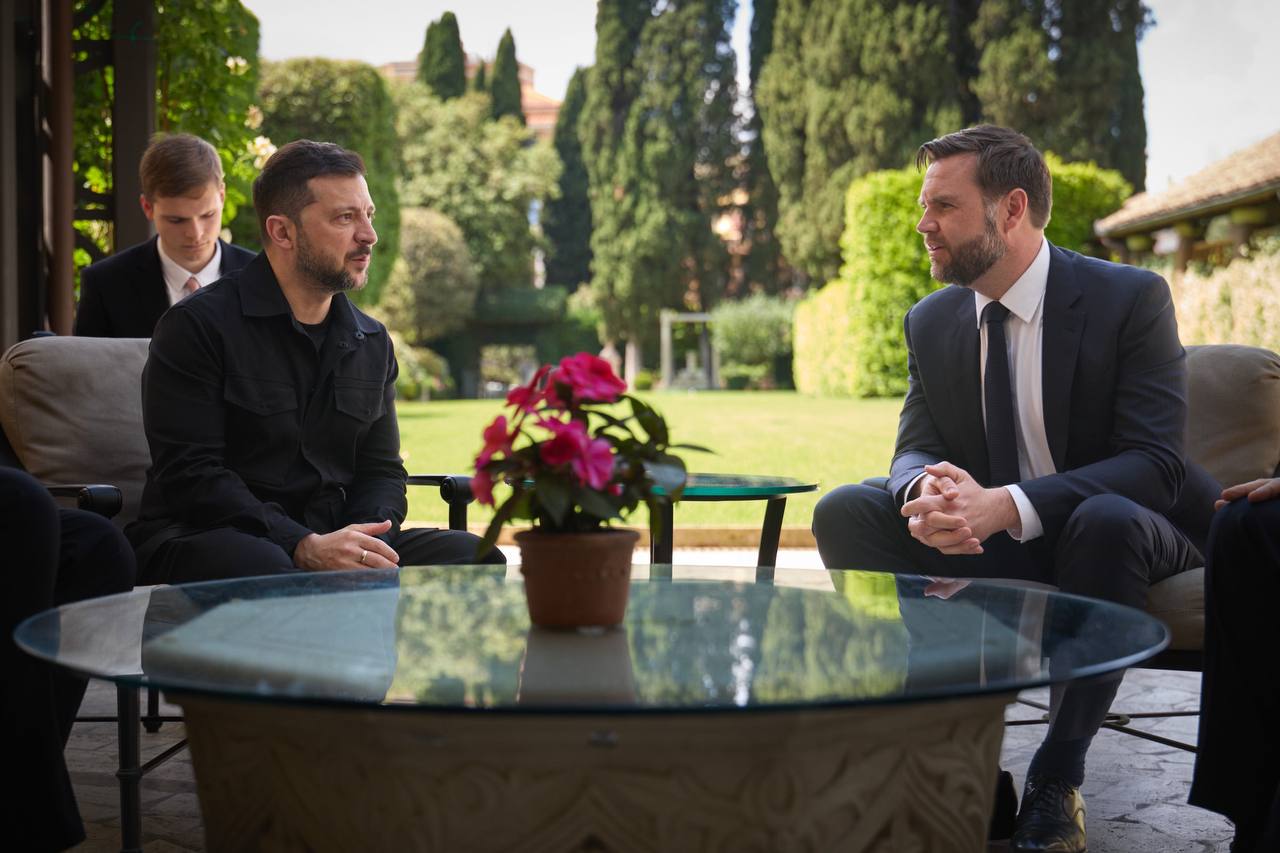
"During our talks we discussed negotiations in Istanbul to where the Russians sent a low level delegation of non-decision-makers," Zelensky wrote on X.
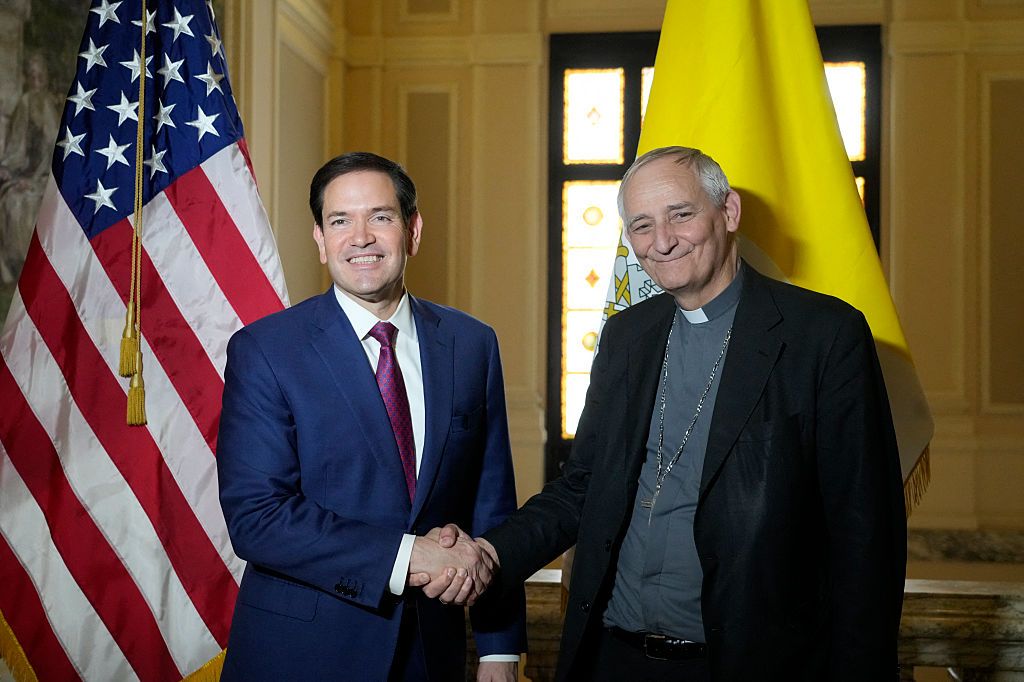
Asked whether the Vatican could act as a peace broker, U.S. Secretary of State Marco Rubio said he "wouldn’t call it broker, but it’s certainly — I think it’s a place that both sides would be comfortable going."
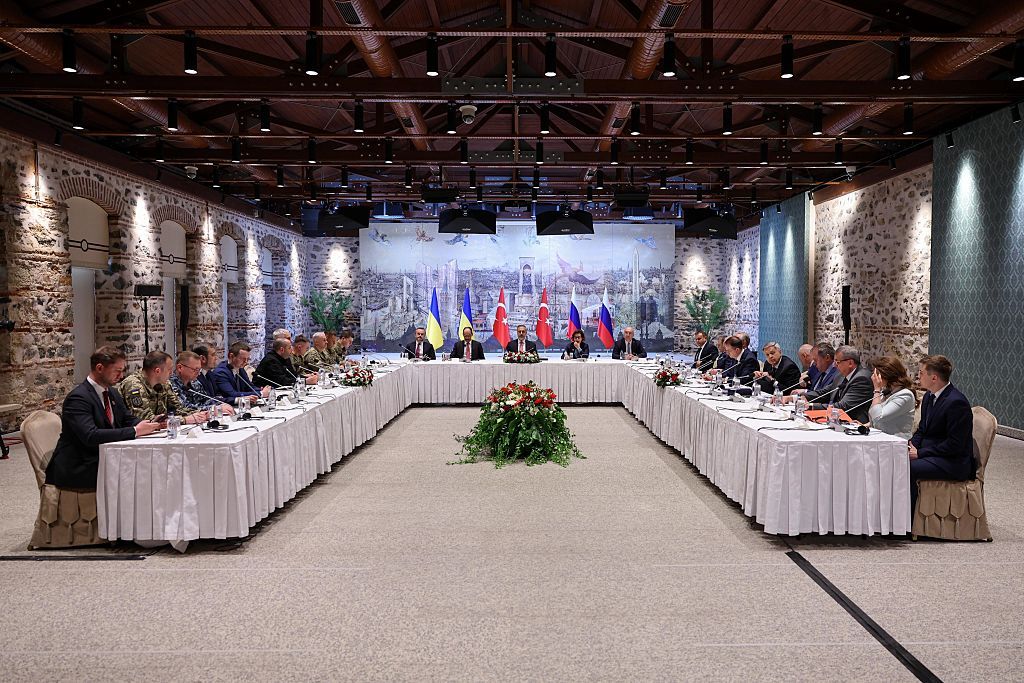
Russian Foreign Minister Sergey Lavrov reportedly welcomed what he described as a “constructive” role by Washington in encouraging Kyiv to accept President Vladimir Putin’s proposal to resume peace talks in Istanbul.
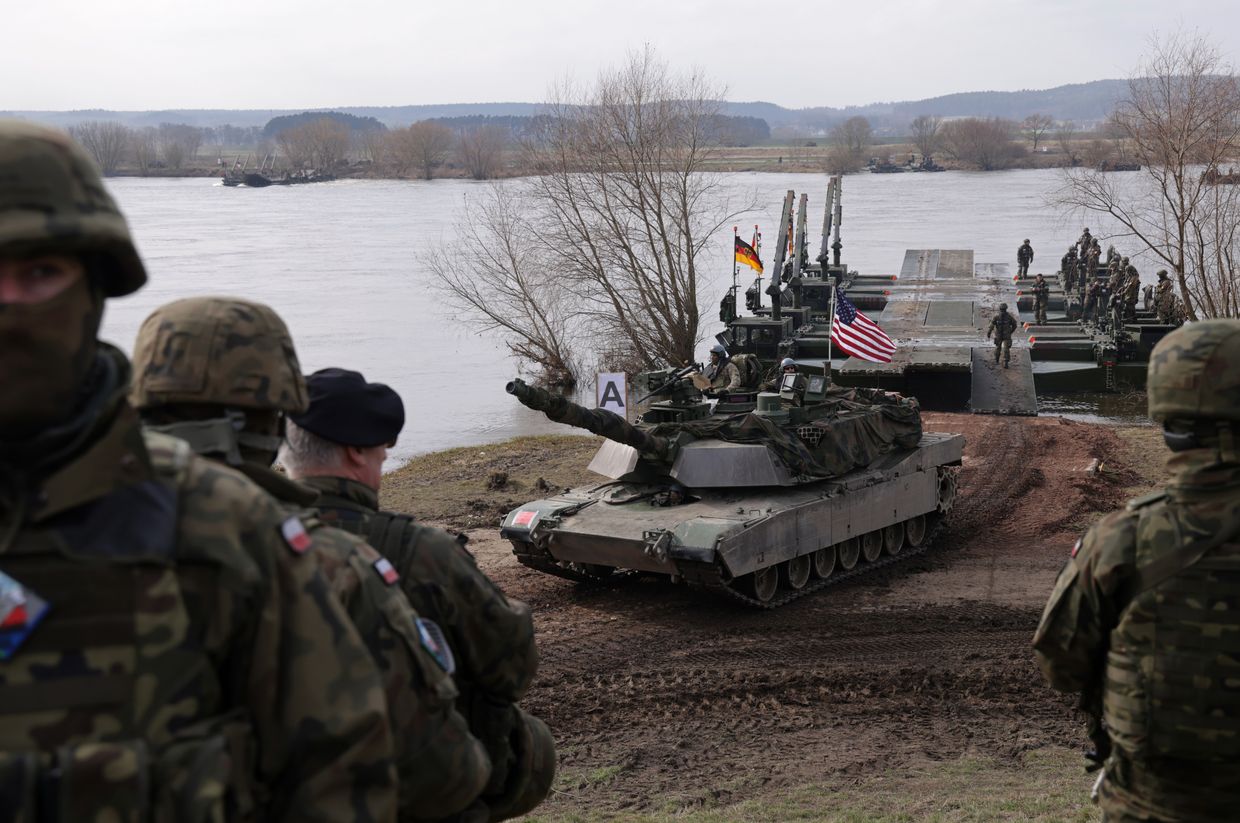
"It’s more than 30 years of U.S. desire (to reduce troops in Europe), President Trump just said, enough, this is going to happen and it’s going to happen now," U.S. Ambassador to NATO Matthew Whitaker said.
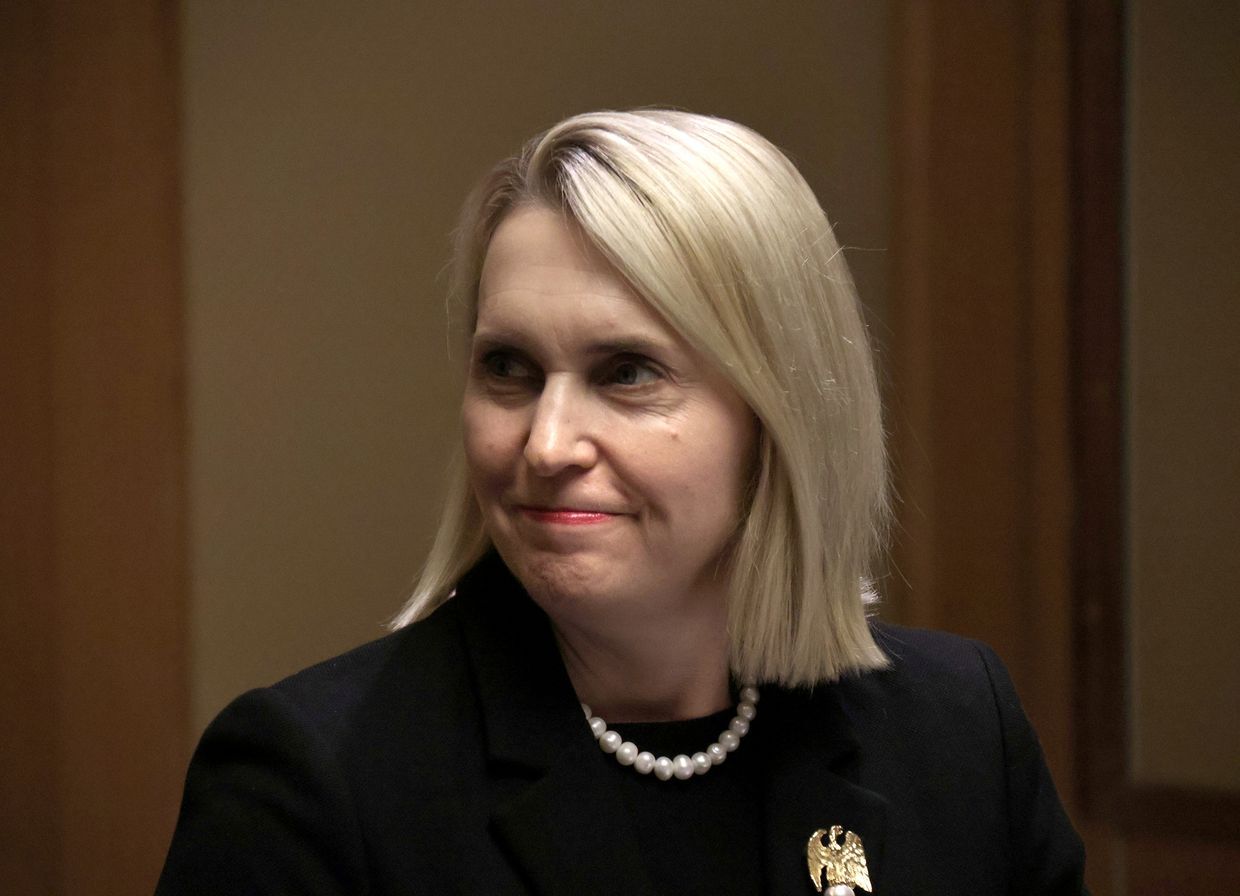
Former U.S. Ambassador to Ukraine Bridget Brink, who held the role since 2022, accused the Trump administration of prioritizing pressure on Ukraine, the victim of Russia's full-scale invasion, rather than confronting the Kremlin.
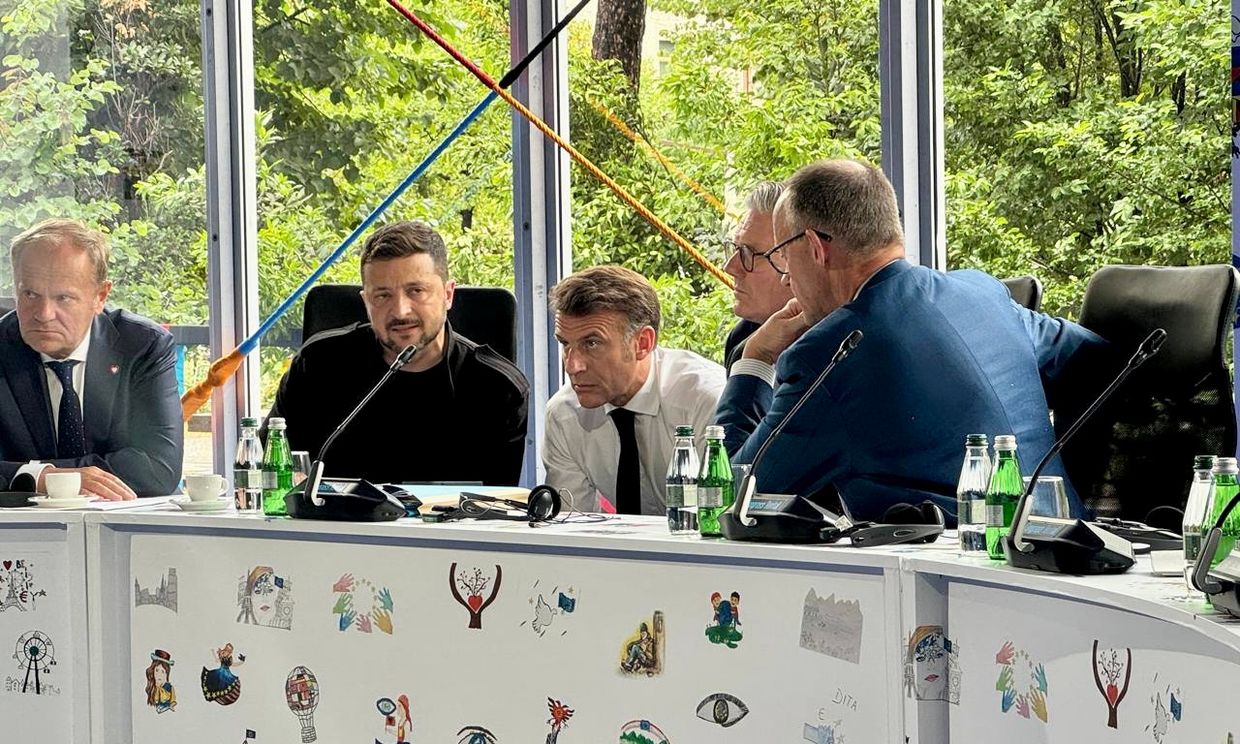
The conversation took place shortly after the conclusion of the Russia-Ukraine peace talks in Istanbul, which ended with little progress beyond an agreement on prisoner exchange.
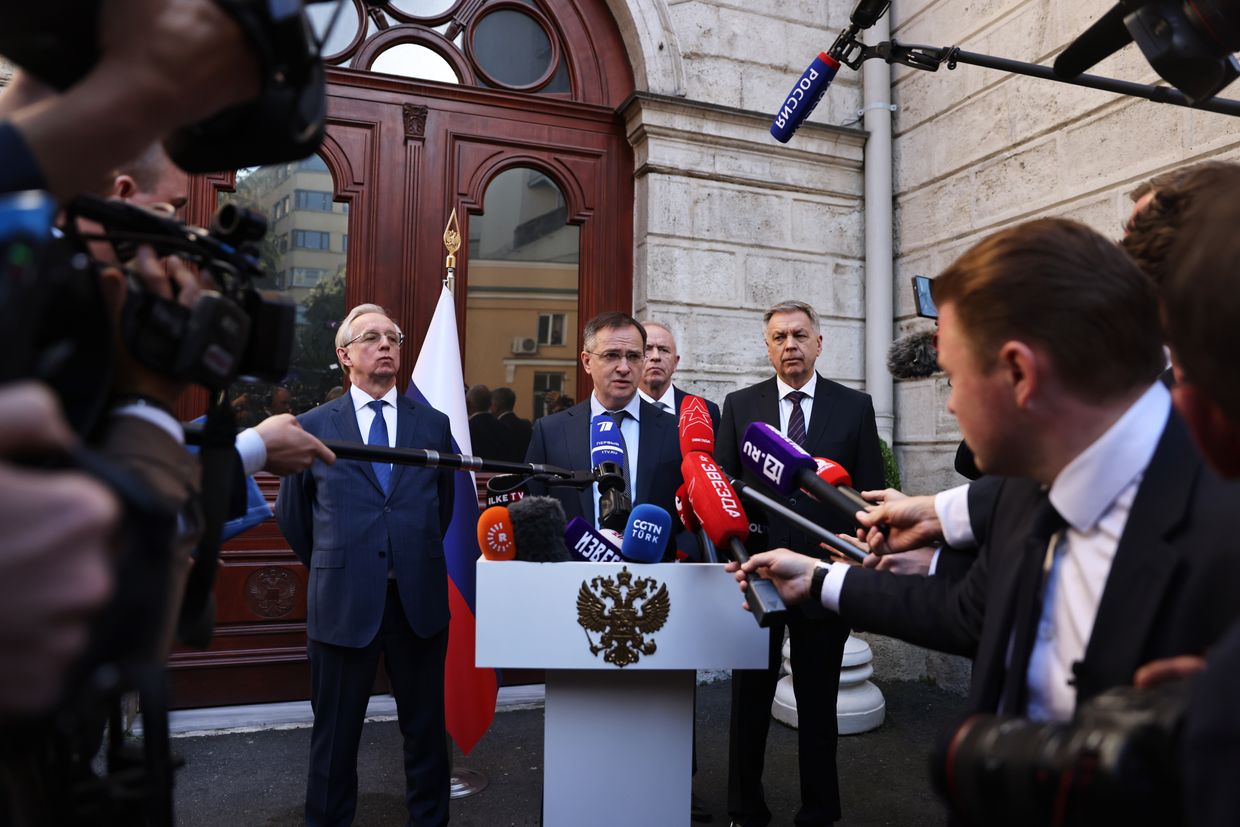
Ukraine has blamed Russia for undermining the expected peace talks in Istanbul by demanding a one-on-one meeting, excluding Turkish or U.S. officials, at the last minute, Sky News and the Guardian reported on May 16.
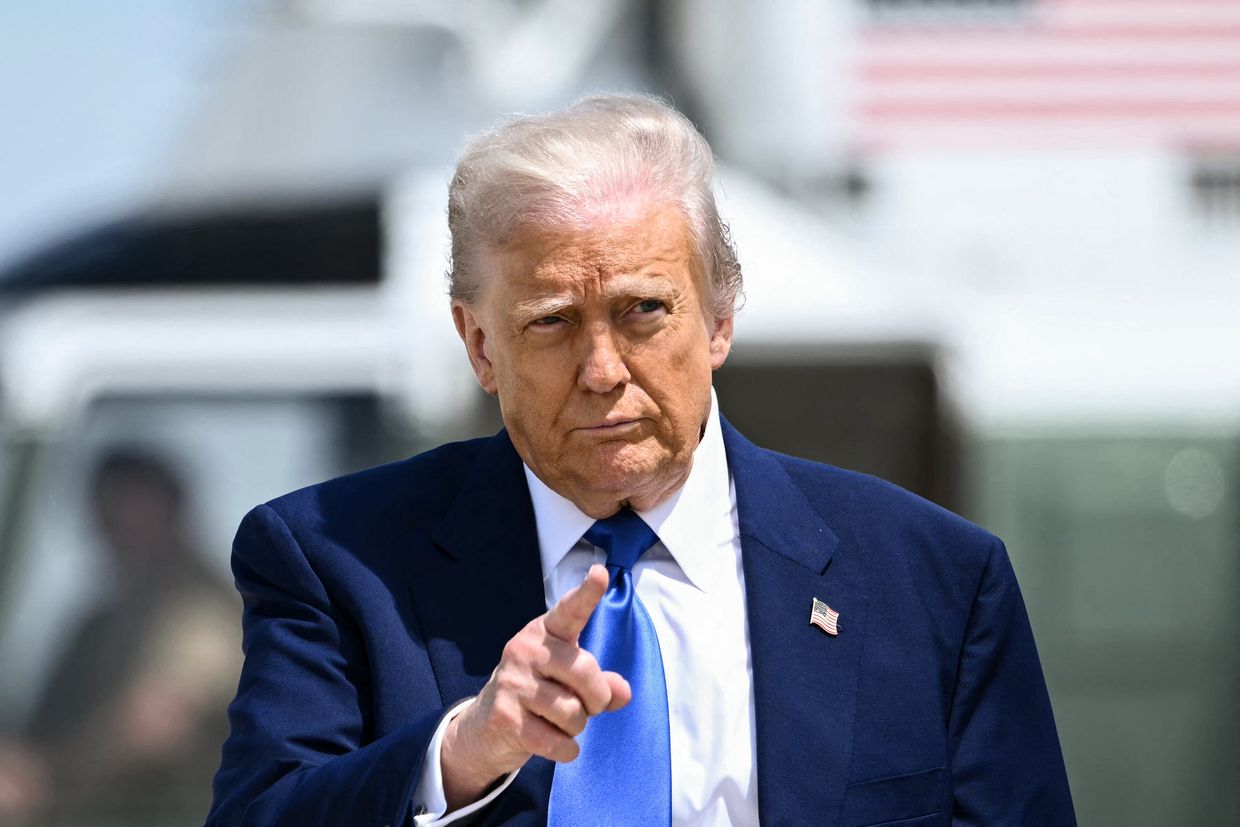
"I think it’s time for us to just do it," U.S. Presidnet Donald Trump said in Abu Dhabi, adding that the meeting between the two would happen "as soon as we can set it up."

"We are headed for a summit in six weeks in which virtually every member of NATO will be at or above 2%, but more importantly, many of them will be over 4% and all will have agreed on a goal of reaching 5% over the next decade," U.S. Secretary of State Marco Rubio said.
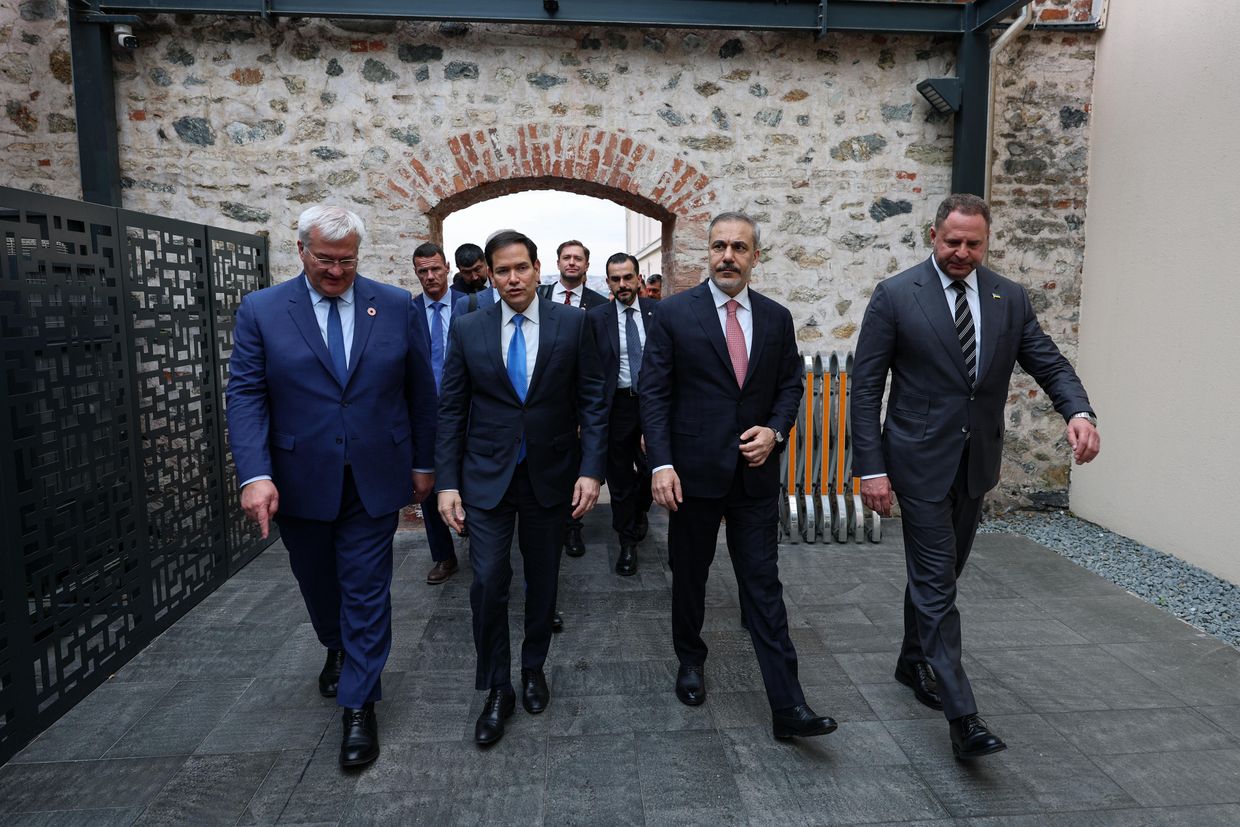
Later in the day, the Ukrainian delegation is set to meet Russian officials for the first direct negotiations since 2022, with Turkish representatives also to be present. Separate meetings between the Russian and U.S. officials are expected.

Presidential Office Chief Andriy Yermak, Foreign Minister Andrii Sybiha, and Defense Minister Rustem Umerov met with French, German, U.K., and the U.S. officials in Istanbul on May 16, Suspilne reported, citing sources in the Ukrainian delegation.
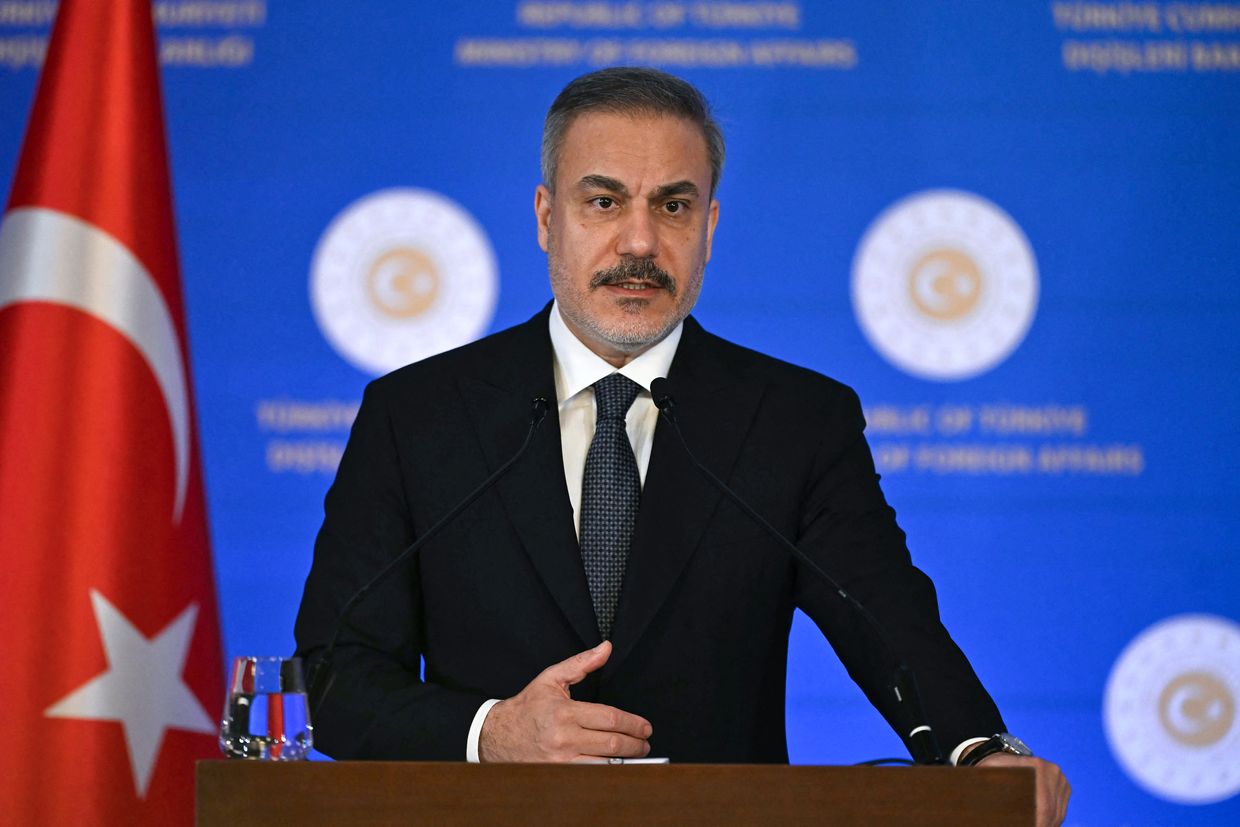
Ukrainian, Russian, and Turkish officials will hold a trilateral discussion in Istanbul on May 16 at 12:30 p.m. local time as part of peace efforts, Turkish state news agency Anadolu reported, citing Turkish Foreign Ministry sources.
